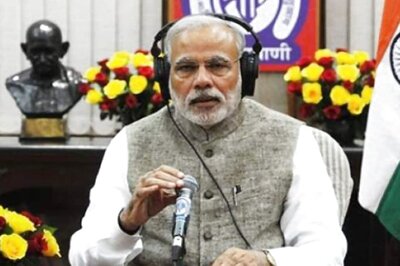
views
CHENNAI: Of what use are the annual statistical data on ‘Crime in India’ - the “oldest and the most prestigious publication” - brought out by the National Crime Records Bureau (NCRB), if decision-makers fail to infer from the lengthy, tabulated figures the necessity of sweeping changes in the crime detection, investigation and prosecution methods of the police in India? For instance, the chapter on ‘Custodial Crimes’ of the 2010 data, released by the NCRB on October 27 this year, shows that the number of reported deaths in custody/lockup between 2008 and 2010 was 255 at the all-India level. Of them, 90 had been remanded to police custody by court, while the remaining 165 victims allegedly died during journey connected with investigation, accidents, mob attack etc.In 2010, according to the report, there were 25 custodial deaths, the same as compared to 2009, while it decreased by 29.8 per cent in 2008 over 2007 (from 57 in 2007 to 40 in 2008) and again decreased by 37.5 per cent in 2009 over 2008 (from 40 in 2008 to 25 in 2009). Of course, these figures are hotly contested by human rights organisations. For example, Tamil Nadu-based People’s Watch has published a well-chronicled list of 43 custodial deaths between May 2006 and April 2010 under the previous DMK government’s watch in the State. The most dubious was the case of Rajan alias Shanmughasundaram, who died at a police station barely 10 hours after shooting down an elderly couple in Chennai.The NCRB report further says that while 15 cases were registered against the police personnel, not one cop was convicted during the year. Eight cases of custodial rape were reported during 2008-10: Two in 2009 and six in 2010, a 200 per cent increase. And the men in khaki rarely get punished for their transgressions due to absence of institutionalised mechanisms in the country for checking the use of the third degree, thanks to New Delhi’s non-ratification of the UN Convention against Torture. Last year, the Union Cabinet “quietly” approved a Bill that would make torture illegal and it is now before a select committee. But rights groups say it is not clear whether the Bill conforms to UN standards.“There has been no movement on the Bill; if there is, it is enormously slow and meets with huge resistance,” says Maja Dharuwala, director, Commonwealth Human Rights Initiative. “Whenever reforms such as these come up, most often they just get buried and forgotten. And I don’t know why it is so because abroad the international community looks keenly towards India for its leadership on human rights issues because of our well-established democratic credentials,” she points out.Referred to a select committee headed by the then deputy chief minister M K Stalin, the status of the Tamil Nadu Police Reforms Bill 2008, is a mystery. Already, it is deeply flawed, as a key provision of the Model Bill - setting up of a ‘Police Complaints Authority’ to ensure accountability - has been excluded. A shame considering the fact that the Kerala and Karnataka Bills have incorporated the powerful mechanism, envisaged at the district and State levels, to act upon public complaints against the police.On October 1, K Muthulingam died while in custody of Vadapalani police and Babu, soon after his release on bail on Oct 20. In a case reported on November 1, 45-year-old Kumar, who accompanied his friend Perumal Udayar, to the CCB for questioning in a land grab case, died of heart attack the same day. An enquiry was ordered into the cases. But with the Centre and the State dithering on the two Bills, there is little doubt that they are only prospective NCRB statistics for 2011.




















Comments
0 comment